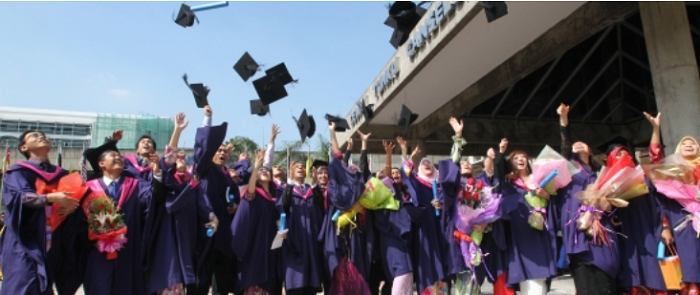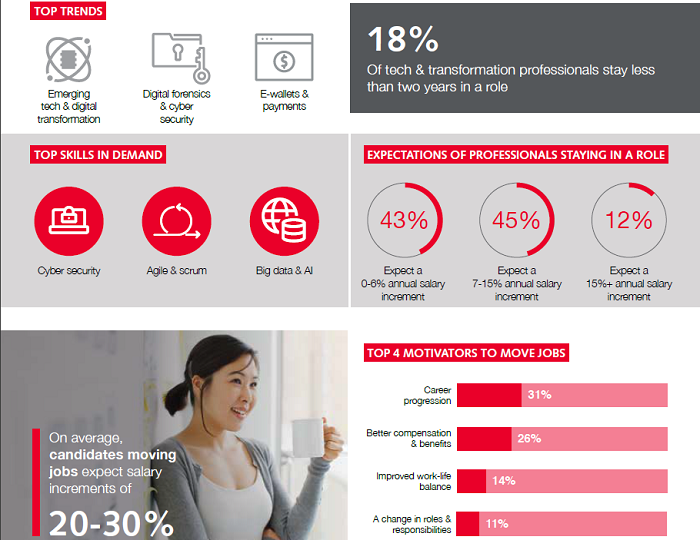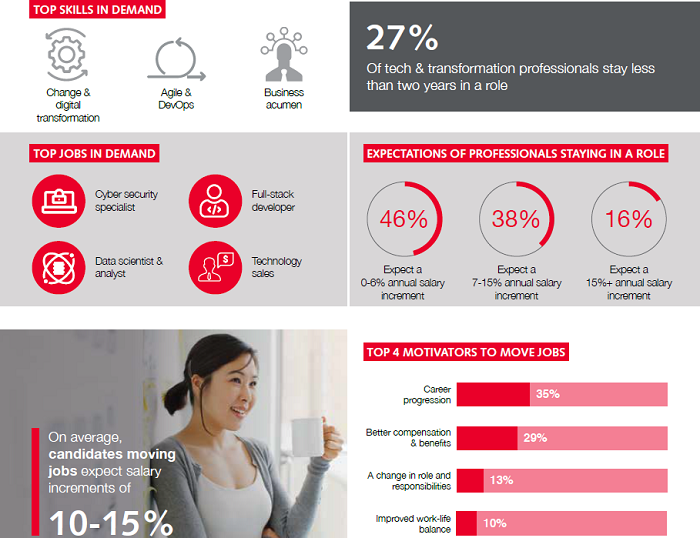Robert Walters 2020 Salary Report: Digitisation Spurs Demand for Tech Talent in Southeast Asia
By Dzof Azmi November 19, 2019
- Hybrid skills sought-after in managers who can use technology to drive core business
- Jobseekers open to non-permanent roles if can gain on-job experience, pick up new skills

Technology remains a major focus for businesses in Southeast Asia, which is in turn shaping hiring trends. Digitalisation will continue to be a major driver in 2020, and there will be a growing demand for “glocal’ professionals, particularly for both mid-level and senior positions.
These were the conclusions reached in the recent Salary Survey 2020 for China and Southeast Asia published by recruitment firm Robert Walters. In Malaysia and Singapore, hiring in 2019 showed steady signs of growth, with robust activity in technology-related fields. Meanwhile, in Indonesia hiring slowed down because of the elections, but is expected to pick up going into 2020.
In particular, the report states that hybrid skills will be sought after, specifically mid-level and senior managers who know how to use new technologies to drive business. Meanwhile, the report also points out that in Singapore there was “a slight decline… for roles perceived to be more traditional in nature, such as transactional accounting and operations”.
The report gives two areas of high demand as examples of how highly valued technology skills are: “HR professionals who are well-versed in workforce analytics and finance professionals with expertise in business intelligence”. The report concludes, “forward-thinking employers are starting to emphasise potential and transferrable skill sets over market sector experience”.

Digital demand across sectors
There is a demand for risk and compliance professionals as fintech disrupts and drives new regulations set by central banks. Meanwhile, the US-China trade war has on the one hand created uncertainty (resulting in a relatively slow 2019), but it has also resulted in manufacturers moving production lines from China to Southeast Asia, spurring demand for talent not just from engineering, but also more generic fields such as accounting and logistics.
The exact sectors that will see a higher demand for technical skills varies slightly from country to country. In Malaysia employers are looking for AI and machine learning, in Indonesia e-commerce is still vibrant while logistics, payments, digital health and edtech will grow in 2020, and in Singapore companies have become more data-centric and require the appropriate talent.
As businesses undergo their transformation journey in Malaysia and Indonesia, there will be a demand for talent experienced in implementing such projects, to ensure a smooth implementation with appropriate change management.

Assure jobseekers they will see opportunity and growth
The report also highlights that employers will need to court jobseekers with assurances that they will be able to learn and develop while doing their work. Meanwhile in Singapore, it is noted if a job offers good learning opportunities and exposure, hires would be more open to non-permanent roles, such as being on contract or interim.
Yearly salary increments are likely to be modest to fair (3%-8% in Malaysia, 8% in Indonesia, 1%-7% in Singapore). Malaysians who get promoted or change jobs can look forward to an increment of 15%-20% (30% in niche cases), while Indonesians will look forward to 15%-30%.
However, in Singapore, there is a gap between what a candidate expects when moving roles (5%-20% salary increments) and what companies are willing to pay (0-12%).

Related stories:


